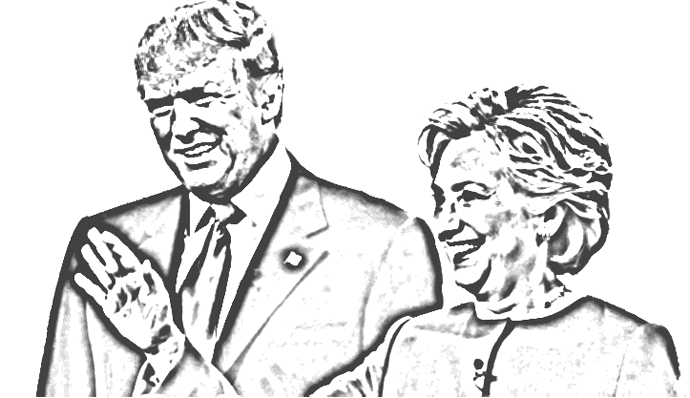By Gehad Abdel Mohsen
Since the incidents of September 11th, the Middle East has been the most critical region in the world for American foreign policy. The stability of military, diplomatic, and economic issues in the Middle East matters now a lot for the finances, safety, and security of the United States. Many world reports talked about the 2016 U.S. presidential election, offering detailed overview of the candidates’ visions with regard to the Middle East. The discussion of foreign policy towards the Middle East in the U.S. presidential campaign is not simply a matter of politics. It also involves economic issues in the Middle East, and their impact on U.S. during the next administration.
Former U.S. Secretary of State Hillary Clinton, the Democratic Party’s candidate, is expected to implement an extension of the current foreign policy of the current President Barak Obama’s administration. While Chairman of Trump Organisation Donald Trump, the Republican Party’s candidate, claims that Obama’s foreign policy has failed in the Middle East.
The U.S. presidential candidates have three visions towards the economic issues in the Middle East, including Egypt, GCC and Iran.
Since the International Monetary Fund (IMF) has offered Egypt a loan agreement and an economic stabilization programme in 2012, Hillary Clinton has been urging the world to grant Egypt bilateral aid to help it reach the loan agreement with the IMF and avoid a financial crisis.
“The international community must provide strong support for the IMF to quickly conclude an economic reform and stabilization programme with Egypt,” Clinton told the UN Security Council.
“We call on Egypt’s friends in the region and around the world to be prepared to use bilateral assistance to reinforce an IMF programme with Egypt,” she added.
When Egyptian President Abdel Fattah El-Sisi visited New York in September 2016, to participate in the UN meeting, he met with Trump and discussed some regional issues.
Trump expressed his support for Egypt and pointed out that “Under Trump administration, the United States of America will be a loyal friend, not simply an ally, that Egypt can count on in the days and years ahead.”
The next election will have direct impact on GCC states, particularly in the energy and trade sectors, with around 25% of US imports of crude oil coming from the GCC.
Clinton always affirms that the Gulf region is a critical partner for security and trade. She tends to keep the ongoing trade and oil deals with GCC, as she focuses on restricting oil drilling operations in the US and encourages investing in renewable energy. Trump’s voiced policies are completely opposite. He aims to stimulate the oil and gas sector and make the US energy independent. Such policies are not in the interest of the GCC states, as the increase of U.S. oil and gas production would reduce US imports of oil from the GCC, and decrease oil prices in global markets. In 2015, Trump said “the Primary reason we’re with Saudi Arabia is because we need the oil. Now we don’t need the oil so much.”
For Iran, Clinton announced her support to the Iran nuclear deal. This deal means that the U.S. would lift the economic sanctions on Iran and start a new era where the two countries can rebuild their economic relations.
On the other hand, Trump opposes the Iran nuclear deal and argues he could negotiate a better deal. He supports an increase in economic sanctions, presumably above the pre-deal baseline. He would also renegotiate all U.S. trade deals that contradict with the U.S. interests, arguing that he can negotiate better deals.
It is to be noted that such changes could affect the existing deals with the Middle Eastern countries.


